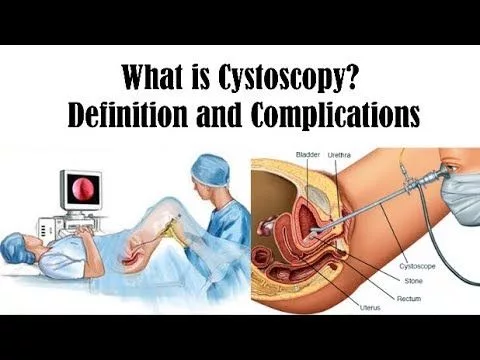Analyzing the legal ramifications of leaked content involves considering several key aspects, including privacy rights, intellectual property laws, and potential civil and criminal liabilities. While I am an AI language model and not a legal professional, I can provide you with a general overview of the issues that may arise in such a situation. It’s important to consult with a qualified attorney for specific legal advice tailored to your circumstances.
- Privacy Rights: Leaked content may involve the unauthorized disclosure of personal or sensitive information. Depending on the jurisdiction, individuals have a reasonable expectation of privacy, and the publication of private information without consent can lead to legal consequences, such as invasion of privacy claims or violation of data protection laws.
- Intellectual Property (IP) Infringement: If the leaked content includes copyrighted materials, such as photos, videos, or written works, the unauthorized distribution or publication of these materials may constitute copyright infringement. Copyright holders can take legal action to enforce their rights and seek remedies for any damages caused.
- Trade Secrets: In cases where leaked content includes confidential business information or trade secrets, the responsible parties may face legal repercussions for misappropriation of trade secrets. This can result in civil litigation and potential damages for the affected party.
- Defamation: If the leaked content contains false statements that harm the reputation of individuals or organizations, they may have grounds for a defamation claim. Defamation generally requires a false statement of fact that is communicated to third parties and causes harm to the individual or entity’s reputation.
- Breach of Contract: Leaked content may also raise issues of breach of contract if the responsible party had a contractual obligation to keep the information confidential. Parties who suffer harm due to a breach of contract may seek remedies such as damages or injunctive relief.
- Criminal Liability: In certain cases, the unauthorized acquisition, distribution, or publication of sensitive or classified information may violate criminal laws, such as hacking or espionage statutes. The severity of the potential criminal charges would depend on the jurisdiction and the nature of the leaked content.
It’s crucial to note that the specific legal implications will vary depending on the applicable laws in your jurisdiction. Legal advice from a qualified attorney who specializes in intellectual property, privacy, or media law is highly recommended to assess the situation accurately and provide guidance based on the specific circumstances surrounding the leaked content.
Privacy Rights
aknottyprincess Leaked ,Privacy rights refer to the legal protections and principles that safeguard an individual’s personal information and private affairs from unauthorized access, use, or disclosure. These rights are essential for maintaining personal autonomy, dignity, and control over one’s personal data. While privacy laws and regulations differ across jurisdictions, there are several common aspects of privacy rights worth considering:
- Expectation of Privacy: Individuals have a reasonable expectation of privacy in certain contexts, such as their homes, personal communications, and private activities. Any unauthorized intrusion into these areas may be a violation of privacy rights.
- Personal Information Protection: Privacy laws often govern the collection, storage, and use of personal information by organizations. These laws typically require organizations to obtain consent for data collection, inform individuals about the purpose of data processing, and implement measures to protect the confidentiality and security of personal data.
- Data Breaches: In the event of a data breach or unauthorized disclosure of personal information, privacy laws may require organizations to promptly notify affected individuals and take appropriate measures to mitigate harm. Individuals affected by a data breach may have legal recourse against the responsible party.
- Surveillance and Monitoring: Privacy rights may be implicated in cases involving surveillance and monitoring activities by governments, employers, or other entities. Laws often establish limits on the extent and purpose of surveillance, requiring transparency, proportionality, and legitimate justifications for such actions.
- Online Privacy: As digital technologies advance, online privacy has become increasingly important. Individuals have the right to control the collection and use of their online data, including browsing history, location information, and online preferences. Many jurisdictions have introduced specific laws, such as the General Data Protection Regulation (GDPR) in Europe, to protect online privacy.
- Privacy Torts: In cases where personal information is published or disseminated without consent, individuals may have grounds for privacy-related tort claims, such as invasion of privacy, public disclosure of private facts, or false light.
It’s important to note that privacy laws and regulations can vary significantly between countries and regions. Consulting with a qualified legal professional who specializes in privacy law is recommended to understand the specific privacy rights and legal protections applicable to your situation.
Intellectual Property (IP) Infringement
Intellectual property (IP) infringement refers to the unauthorized use, reproduction, distribution, or exploitation of someone else’s intellectual property rights without their permission. Intellectual property encompasses a range of creations, including inventions, literary and artistic works, symbols, names, images, and designs. Here are some key points to consider regarding IP infringement:
- Copyright Infringement: Copyright protects original works of authorship, such as literary works, music, films, software, and visual arts. Unauthorized copying, distribution, public display, or creation of derivative works without the copyright holder’s consent may constitute copyright infringement. Copyright infringement claims can lead to legal action, injunctions, damages, or the removal of infringing materials.
- Trademark Infringement: Trademarks are distinctive signs, logos, symbols, or words that identify and distinguish goods or services. Unauthorized use of a trademark that creates a likelihood of confusion, dilutes the distinctiveness, or tarnishes the reputation of a registered trademark may amount to trademark infringement. Trademark holders can enforce their rights through legal action, seeking injunctions, damages, or the cessation of infringing activities.
- Patent Infringement: Patents protect inventions, granting exclusive rights to the inventor for a limited period. Unauthorized making, using, selling, or importing of a patented invention can constitute patent infringement. Patent holders can initiate legal proceedings to defend their rights, seek damages, or obtain injunctions to prevent further infringement.
- Trade Secret Misappropriation: Trade secrets encompass confidential business information that provides a competitive advantage. Unauthorized acquisition, use, or disclosure of trade secrets, such as formulas, processes, customer lists, or marketing strategies, may lead to trade secret misappropriation claims. Affected parties can seek legal remedies, including damages, injunctions, or the return of misappropriated information.
- Counterfeiting: Counterfeiting involves the unauthorized reproduction or imitation of products, packaging, or trademarks, often with the intention of deceiving consumers into believing they are purchasing genuine goods. Counterfeiters may face legal consequences, including civil actions, criminal charges, fines, or seizure of counterfeit goods.
It is important to consult with a legal professional who specializes in intellectual property law to understand the specific legal framework, rights, and remedies available in your jurisdiction. They can provide guidance tailored to your circumstances and assist in enforcing your intellectual property rights or defending against infringement claims.
Trade Secrets:aknottyprincess Leaked
Trade secrets are a type of intellectual property that encompasses confidential information, formulas, methods, processes, techniques, or business strategies that provide a competitive advantage to a company or individual. Unlike patents or copyrights, trade secrets are not publicly registered; their value lies in their secrecy. Here are some key points to consider regarding trade secrets:
- Definition of Trade Secrets: Trade secrets can include a wide range of valuable and non-public information, such as customer lists, manufacturing processes, marketing strategies, pricing formulas, algorithms, or technical know-how. For information to qualify as a trade secret, it must be confidential, provide economic value to its owner, and be subject to reasonable efforts to maintain its secrecy.
- Protection of Trade Secrets: Trade secrets are protected primarily through maintaining their secrecy. Companies implement various measures to safeguard trade secrets, such as non-disclosure agreements (NDAs), restricted access to confidential information, employee training on handling sensitive data, and physical or digital security measures. If someone unlawfully acquires, uses, or discloses a trade secret, legal action can be taken to protect the rights of the trade secret owner.
- Misappropriation of Trade Secrets: Misappropriation refers to the unauthorized acquisition, use, or disclosure of trade secrets by someone who is not the rightful owner. This can occur through actions like theft, unauthorized access, breach of contract, or industrial espionage. Laws related to trade secrets aim to prevent misappropriation and provide remedies for the trade secret owner.
- Legal Remedies: In the event of trade secret misappropriation, the trade secret owner can pursue legal action to protect their rights. Remedies may include injunctive relief (e.g., court orders to cease the unauthorized use or disclosure of trade secrets), monetary damages (compensation for losses incurred), and, in some cases, punitive damages to deter future misconduct.
- Trade Secret Litigation: Trade secret litigation involves legal proceedings to address trade secret misappropriation. Parties involved may need to provide evidence to demonstrate ownership of the trade secret, establish that misappropriation occurred, and quantify the damages suffered as a result. Trade secret cases can be complex, requiring the expertise of attorneys specializing in intellectual property and trade secret law.
It’s important to consult with a qualified attorney who specializes in trade secret law to understand the specific legal requirements, protection strategies, and available remedies related to trade secrets in your jurisdiction. They can provide tailored advice and guidance based on the particular circumstances surrounding your trade secrets.
Also read:Chatatube Vs. Traditional Chat: What Makes Chatatube Unique
Defamation: aknottyprincess Leaked
Defamation refers to the act of making false statements about a person or entity that harm their reputation. It involves the communication of these false statements to a third party, resulting in damage to the reputation of the affected individual or entity. Defamation can take two forms: slander and libel.
- Slander: Slander refers to spoken defamatory statements or gestures that are transient in nature. This includes false oral remarks made to others that harm a person’s reputation, character, or integrity.
- Libel: Libel refers to written or published defamatory statements. It involves the dissemination of false information in written form, such as through newspapers, magazines, websites, social media posts, or other permanent mediums.
To establish a defamation claim, the following elements are typically required:
a. False Statement: The statement in question must be false rather than an expression of opinion or a true statement of fact.
b. Publication: The false statement must be communicated to a third party, meaning it is shared with someone other than the subject of the statement and the person making the statement.
c. Harm to Reputation: The false statement must cause harm to the reputation of the individual or entity involved. This harm can include damage to their personal or professional standing, ridicule, or loss of opportunities.
d. Negligence or Intent: Depending on the jurisdiction, the plaintiff may need to demonstrate that the defendant acted negligently or with intent to harm when making the false statement.
Defenses to defamation may include:
a. Truth: If the statement made is true, it typically serves as a complete defense against a defamation claim.
b. Opinion: Expressing an opinion based on disclosed facts is generally protected as free speech and may not be considered defamatory.
c. Privilege: In some circumstances, statements made within certain contexts, such as in court proceedings or legislative debates, may be protected by qualified or absolute privilege.
Defamation laws and standards vary across jurisdictions, so it’s crucial to consult with a qualified attorney who specializes in defamation law in your jurisdiction for accurate advice tailored to your specific situation.
Breach of Contract:aknottyprincess Leaked
Breach of contract refers to the violation or failure to fulfill the terms and conditions agreed upon in a legally binding contract between two or more parties. When one party fails to perform its obligations as specified in the contract, it is considered a breach. Here are some key points to consider regarding breach of contract:
- Elements of a Contract: A valid contract typically includes several elements, such as an offer, acceptance, consideration (something of value exchanged between the parties), mutual agreement, and intention to create legal relations. Contracts can be written, oral, or implied based on the actions of the parties involved.
- Types of Breach: There are different types of breaches of contract:a. Material Breach: A material breach occurs when one party fails to perform a substantial part of their contractual obligations, which significantly affects the core purpose of the contract. In such cases, the non-breaching party may be entitled to terminate the contract and seek remedies.b. Minor Breach: A minor breach, also known as a partial breach, involves a failure to perform a non-essential part of the contract or a minor deviation from the agreed terms. The non-breaching party may still have the right to seek damages but cannot terminate the contract.c. Anticipatory Breach: An anticipatory breach occurs when one party clearly communicates their intention not to fulfill their contractual obligations before the performance is due. The non-breaching party may consider this as a repudiation of the contract and may choose to terminate the contract and seek remedies.
- Remedies for Breach of Contract: In cases of breach, the non-breaching party may seek various legal remedies, which can include:a. Damages: Monetary compensation to cover the losses suffered as a result of the breach. There are different types of damages, such as compensatory damages (actual losses), consequential damages (losses indirectly caused by the breach), and punitive damages (awarded in certain cases of intentional or malicious breach).b. Specific Performance: In some cases, a court may order the breaching party to fulfill their contractual obligations as originally agreed upon, typically used when monetary damages are insufficient.c. Rescission: The non-breaching party may choose to terminate the contract and be released from further performance if the breach is significant. This option is commonly used when the breach fundamentally undermines the purpose of the contract.d. Reformation: If there is a mistake or ambiguity in the contract, a court may modify or reform the terms of the contract to reflect the true intentions of the parties involved.
- Mitigation: The non-breaching party has a duty to mitigate their damages, which means taking reasonable steps to minimize the losses resulting from the breach. Failure to mitigate damages can impact the amount of compensation awarded.
It’s important to consult with a qualified attorney who specializes in contract law to understand the specific legal requirements and available remedies in your jurisdiction. They can provide tailored advice based on the terms of your contract and help you navigate the breach of contract situation effectively.
Criminal Liability:
Criminal liability refers to the legal responsibility individuals may face for committing acts that are considered offenses or crimes under the law. Criminal liability arises when someone violates criminal statutes, which are laws established by a jurisdiction to prohibit certain behaviors and protect public welfare. Here are some key points to consider regarding criminal liability:
- Criminal Offenses: Criminal offenses can encompass a wide range of actions, from property crimes like theft or burglary to violent crimes such as assault or murder, as well as offenses related to fraud, drug possession or trafficking, cybercrime, and more. Each jurisdiction defines and categorizes criminal offenses according to its own laws.
- Elements of a Crime: To establish criminal liability, the prosecution must prove certain elements of the crime beyond a reasonable doubt. These elements typically include the actus reus (the guilty act) and the mens rea (the guilty mind), meaning that the accused person not only committed the prohibited act but also did so with the required level of intent or knowledge.
- Legal Penalties: If convicted of a criminal offense, individuals may face various legal penalties, including fines, probation, community service, imprisonment, or a combination of these. The severity of the penalties depends on the nature and severity of the offense, as well as any aggravating or mitigating factors.
- Criminal Procedure: Criminal cases typically involve a formal legal process that includes arrest, charges being filed by the prosecution, arraignment, trial, and potential appeals. During this process, both the prosecution and the defense present evidence, cross-examine witnesses, and make arguments before a judge or jury. The burden of proof rests on the prosecution, who must prove the guilt of the accused beyond a reasonable doubt.
- Defenses: Individuals accused of a crime have the right to present defenses to challenge the charges against them. Common defenses include lack of intent, alibi, self-defense, necessity, duress, and insanity. The availability and effectiveness of defenses depend on the specific circumstances and the laws of the jurisdiction.
- Juvenile Criminal Liability: In cases involving minors, the legal system often has separate procedures and standards for juvenile offenders. These procedures aim to prioritize rehabilitation and focus on the best interests of the child, while also holding them accountable for their actions.
It’s important to consult with a qualified criminal defense attorney who specializes in the laws of your jurisdiction to understand the specific legal framework, defenses, and potential consequences related to criminal liability. They can provide tailored advice and representation based on the circumstances of your case.
conclusion
In conclusion, understanding legal concepts and ramifications is crucial for navigating various situations. Privacy rights protect individuals’ personal information and require consent for data collection and secure data handling. Intellectual property infringement involves unauthorized use of copyrighted works, trademarks, or patents, leading to legal consequences. Trade secrets safeguard confidential business information, and misappropriation can result in legal action. Defamation encompasses false statements that harm someone’s reputation, leading to potential legal claims. Breach of contract occurs when parties fail to fulfill their contractual obligations, resulting in remedies such as damages or contract termination. Criminal liability pertains to the legal responsibility for committing criminal offenses, subjecting individuals to penalties through the criminal justice system.
These legal topics are complex and can vary across jurisdictions. Seeking guidance from qualified legal professionals who specialize in the relevant fields is crucial to ensure proper understanding and adherence to applicable laws. Legal advice tailored to specific circumstances can help individuals protect their rights, navigate legal challenges, and make informed decisions.
Also read:Introducing Totallyscience GitLab: Your Complete Guide








